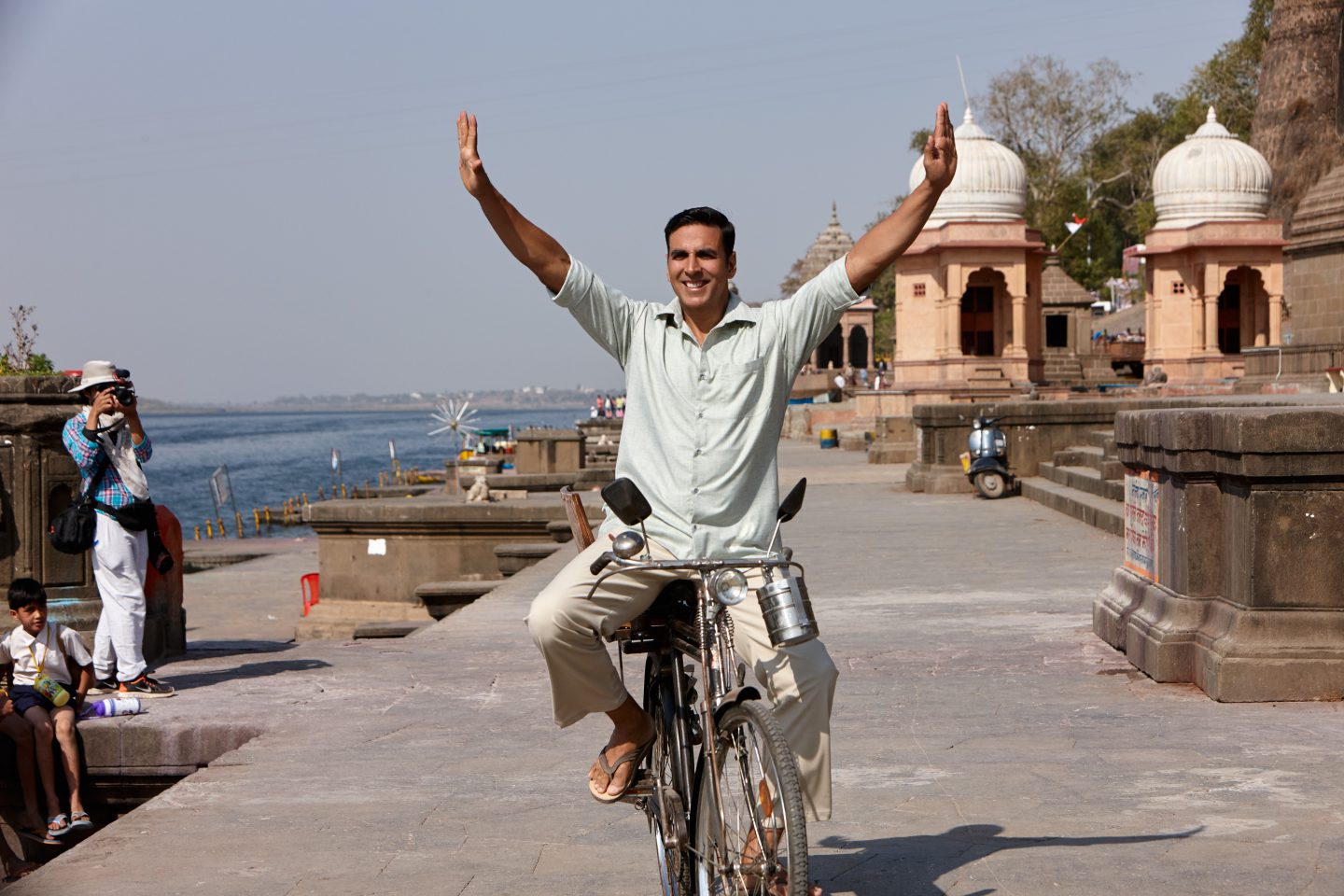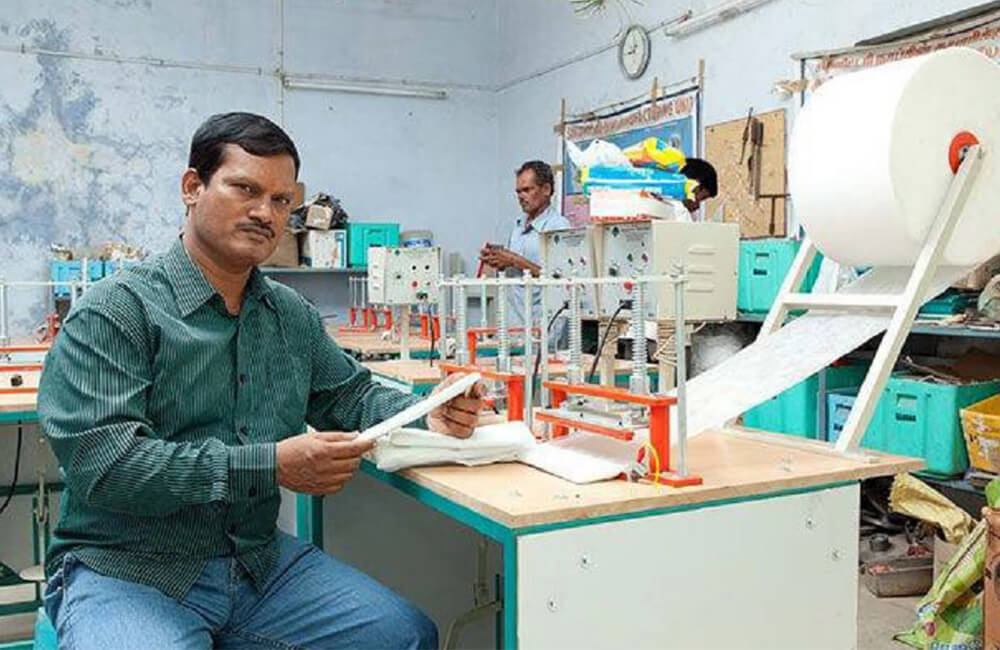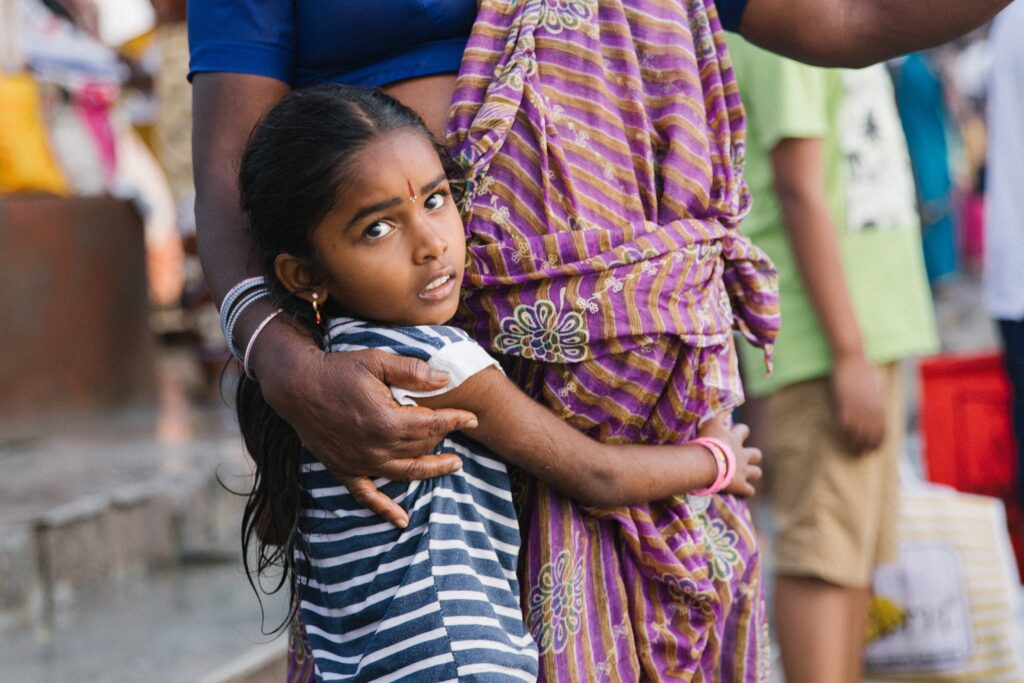MOVIE

Padman
Produced in 2018 / 137 min / G / India
Directed by R. Balki
― Synopsis ―
A true story based on Arunachalam Muruganandam, a social entrepreneur living in southern India.

The protagonist starts his newly married life in a poor rural town in India, and one day he notices that his wife sleeps and wakes up on the balcony once a month. Also, on the laundry rope on the balcony, there were rags hanging out to dry that were not even used to clean the bicycle. When the protagonist learns that his wife uses them as sanitary products, he vows to make cheap and clean sanitary products, but he is confronted by old customs and prejudices, as well as technical problems. However, he is confronted not only by technical problems, but also by old customs and prejudices. It is unthinkable for a man to talk about a woman's period, and his wife is taken back to her parents' house because she is considered crazy. In desperation, the protagonist left the village to make it, working and making money to finally succeed in building a cheap machine. This is a human drama (with singing and dancing!) about what strength and love are, and how the protagonist breaks through the old notions of male and female supremacy. It is a human drama (with singing and dancing! And what is the path he chooses in the end?
Stars
India is the country that is attracting the most attention right now.
With a population of about 1.5 billion, it is a country with the most advanced IT technology, and its GDP is rising rapidly every year. India is a country with a population of about 1.5 billion, the most advanced IT technology, and a rising GDP every year. It is also, after all, the birthplace of Buddhism.
I have long admired this country, and it is still the number one country I would like to visit.
However, there are many reasons why I am hesitant to visit. The biggest one is hygiene. It's a shameful thing to say, but I'm not confident that I won't get an upset stomach when I go to this country. My friend who has been to India many times has had a bad experience at least once, and we ate spicy chicken curry while listening to her say, "I managed to get to the hospital with a persistent high fever, but it was difficult to explain the symptoms…. But I've been feeling much better lately, so I think I'll be okay.
I see. I guess it's okay then.
I asked my Indian friend to that effect.
Hmm," she said, twisting her head.
Hmm," she said, twisting her head, "hotels in Delhi and such might be like that, though. I don't know.
Which is it?
It might be a good idea to go there without complaining, and get in shape.
I'm not sure.
Another thing that worries me is the security of the place.
I had the impression that it was dangerous to wander around the city, especially because of its disdain for women.
There was a horrific incident that convinced me of such an impression. It was the 2012 Indian gang rape case.
In this case, a 23-year-old medical student and her male friend were looking for a cab to go home after watching a movie in Delhi at around 9 p.m. When they could not find one, a boy approached them and asked them to take a bus. After some hesitation, they boarded the bus and found six men on board, including the driver. The doors of the bus were closed and it continued to run even though it deviated from its route. The woman became uneasy and asked to be let off, but the men beat her male friend and raped her. In doing so, they pierced her abdomen with an iron pipe and pulled out her intestines. The two men were thrown naked on the side of the road and taken to an ambulance, but the woman died soon after.
This horrific incident became a major issue in India, and became a social problem as women, who had never been brought to justice for rape cases, stood up and demonstrated.
As a result, four of the perpetrators were sentenced to death.
However, the BBC's interview with the condemned men was not broadcast in India because they showed no remorse and repeatedly made derogatory remarks about the women victims. (The story was not broadcasted in India because the men showed no remorse in the interviews and repeatedly made derogatory remarks about the victims.)
It is said that the "caste system" is behind the high number of rape cases and the fact that the police do not take action and arrest the perpetrators even when there are rape cases.
The "caste system" is a concept that Japanese people may find a little difficult to understand. It has a long history, spanning over 3,000 years. The basic concept seems to be that 1) there is no freedom of choice of occupation, and 2) only people of the same caste can marry. I have heard that the reason behind the increase in the number of good IT workers in India is because it is a new field where the caste system does not apply.
If India is a society where such a horrible notion that women from the lowest caste can't help but be raped is prevalent, then India has no future.
This is why the government has been making a concerted effort to raise awareness and improve the image of the country.
And in 2018, this "Padman" was produced.
Whether it was made for image strategy or not, I am not sure.
However, I am sure that watching this film improved my image of India as a country with "strong male chauvinism.

In the current situation in India, poor women cannot escape the domination of their caste, house, husband and father, and are always at risk of violence. However, the film depicts a system where poor rural women can become economically independent by making their own napkins and selling them. This so-called "micro-credit" is currently being implemented as part of development programs for women in various parts of India.
It may not be easy to change thousands of years of customs and people's values, but one person's courage or desire can make a difference.
☆☆☆
In Japan, it is often said that the gender gap index, the ratio of corporate executives, and the percentage of women in society is very low among developed countries. From my personal point of view, I feel that it is difficult to live in Japan regardless of gender.
I don't think that women are particularly despised or are in constant danger of violence.
Of course, rape and stalking cases happen every day, and domestic violence is on the rise every year.
https://www.gender.go.jp/policy/no_violence/e-vaw/data/pdf/dv_data.pdf
(According to the Cabinet Office)
However, I feel that the number of women victims of sexual violence in Japan is still small compared to the number of women victims in other countries.
Historically, in Japan, a family was inherited by the eldest son, and the second and third sons were not allowed to have a family. One of the reasons for this was that if the farmland was divided among the siblings, the land would be too small to cultivate, which would make it impossible to grow enough crops to make a living.
At some point, this led to a trend of valuing the "eldest son" and the "male".
In addition, many of the unique Japanese Buddhist sects called "Kamakura Buddhism" upheld the "no women allowed" policy, which led to the penetration of the awareness among the people that "women" were "unclean".
This sense of "impurity" is deeply rooted in people's consciousness and seems to be common all over the world. Obviously, this is due to the male-dominated nature of religion and politics. It is a structure that excludes and dominates women.
It is a structure that excludes and dominates women, a structure that is difficult to get rid of because it permeates and takes root in the unconscious.
It shows up in the most random places.
When you buy sanitary products at the supermarket or pharmacy, you put them in a paper bag so that they cannot be seen from the outside. A woman who gives life-saving measures to a wrestler who collapsed during a sumo tournament is warned to get out of the ring. A high school student who becomes pregnant is expelled from school.
Can anyone give a well-reasoned explanation for these reasons? I would like to see a scientific and well-reasoned explanation.
Aside from the deep-rootedness of the caste system in India, the "defilement" ideology that dominates women is also a very deep-rooted problem.
This is why I would like men to see "Padman".
Although the movie is full of plot holes (the last part is too fast!) I would like you to pay attention to the structural discrimination that you may not be aware of, but it definitely exists. I believe that removing this structure is the key to Japan's development.
Yukiko Yako
https://grungehouserecords.shop/items/60af34537c42ee72ddd3699b


